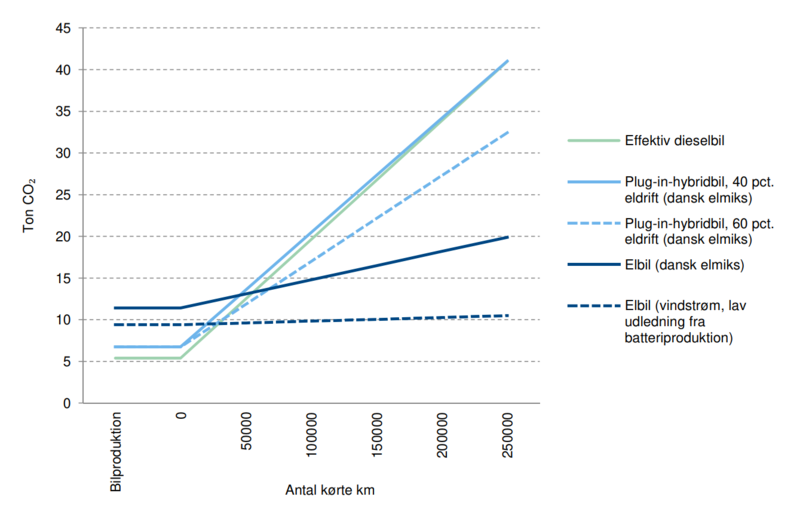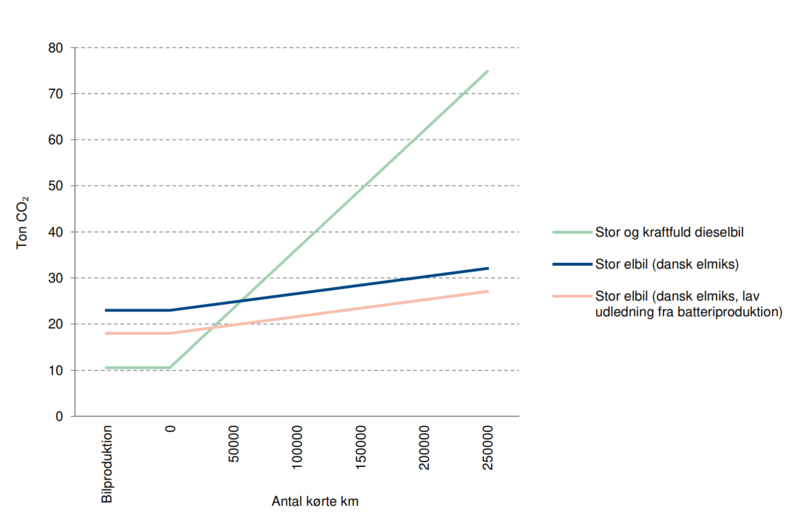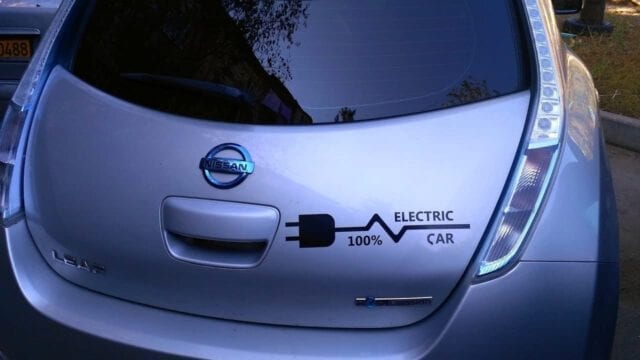Electric cars and ecology - this issue is more and more often discussed in the automotive environment. The Danish Climate Council has approached this issue comprehensively. In the latest research, they took into account not only the differences in exhaust emissions between elbows and internal combustion vehicles. Contamination resulting from production processes has also been taken into account.
Electric cars in Norway
As we already wrote on on the pages of our portal, Norway focuses on the development of the electric car industry. The fact that currently more than 50% of newly sold cars in this country are those equipped with electric motors results from legal solutions favoring this industry. The first steps in this direction were taken already in 1990, when the duty on these vehicles was abolished. The real breakthrough came in 2002 when it was decided to abolish the 25% VAT on elbile. The effects began to appear only 20 years after the first improvements were introduced.
Also read: Ford thinks about success in the electric car industry >>>
Electric cars and ecology
The wave of growth in popularity meant that more and more people began to think about the issue of "Electric cars and ecology". The latest research results were provided by the Danish Climate Council, which analyzed all aspects related to Elbil - from production processes to operation. The pollutants in the share of vehicles powered by internal combustion engines were also taken into account.
Less carbon dioxide emissions
The Danish Climate Council adopted the following assumptions for the analyzes:
- electric car powered by a 40 kWh battery,
- 150 kg of carbon dioxide used to produce 1 kWh of battery power,
- mileage 200 thousand kilometers before the car is scrapped.
The Nissan Leaf, which has a 40 kWh battery, fits these assumptions. According to research, initially elbil shows higher carbon dioxide consumption due to production processes. However, as a whole, electric vehicles are becoming greener at just 50 kilometers. Details are presented in the chart below:

Source: Danish Climate Council
It is clear that when only renewable energy sources are used to generate electricity, the carbon footprint of electric cars is even lower over the entire life cycle of the vehicles. The initial amount of pollutants emitted is indeed greater than in the case of internal combustion cars, but in the course of use, these values become equal already at approx. 10 thousand. kilometers traveled.
Also read: This is the end of Tesla's free charging? >>>
The situation is similar in the case of elbili with a 100 kWh battery, as shown in the diagram below:

Source: Danish Climate Council
In this analysis, the parameters of Tesla S and X, with a 100 kWh battery, were used. About 23 tons of carbon dioxide were used to produce these vehicles, however, as a result of low emissions during operation, already at 50 thousand. kilometers traveled, this value is equal to that of combustion vehicles.
Also read: Electric cars in Norway - a new chapter of the automotive industry >>>
Results
Electric cars and ecology are similar concepts. Based on the results of the Danish Climate Council's research, it is clear that although the production of elbil itself is associated with a greater emission of carbon dioxide than in the case of the production of combustion equivalents, these differences are eliminated with the kilometers traveled. The above charts show that:
- the production of elbil from 40 kWh is associated with the emission of CO2 at the level of approx. 23 tons, while the production of the combustion equivalent consumes approx. 5 tons of CO2. However, already at 50 thousand. kilometers traveled, the total emission resulting from electric cars is equal to combustion vehicles - the more kilometers, the greater the difference in favor of elbili,
- when using renewable energy sources, higher CO2 emissions during production are "neutralized" already at 10 thousand. kilometers.
Pro-ecological elbile
Electric cars and ecology go hand in hand. The difference in carbon dioxide emissions after driving 200 km. kilometers between Elbil and an internal combustion vehicle is approx. 43 tons. Currently, there are around 1,1 billion of all passenger cars in the world - a simple estimate that if all were replaced by electric cars only, CO2 emissions would decrease by 47,3 billion tonnes over the life cycle. Assuming that the average daily mileage of a car is 30 km, we get 10,8 thousand. km per year - therefore the life cycle of a car can be estimated at approx. 18 years. In total, replacing internal combustion engines with electric ones in passenger cars results in lower CO2 emissions by approx. 2628 million tonnes per year.



